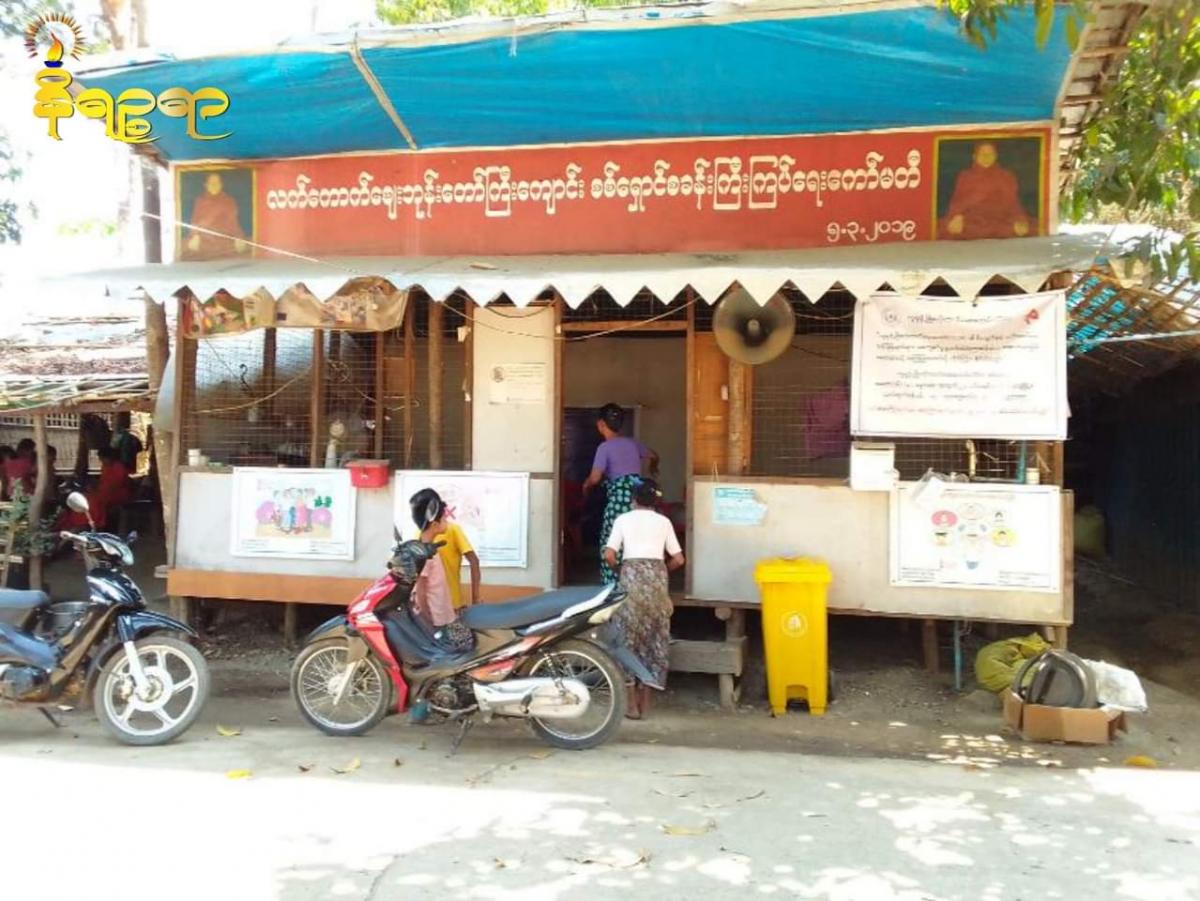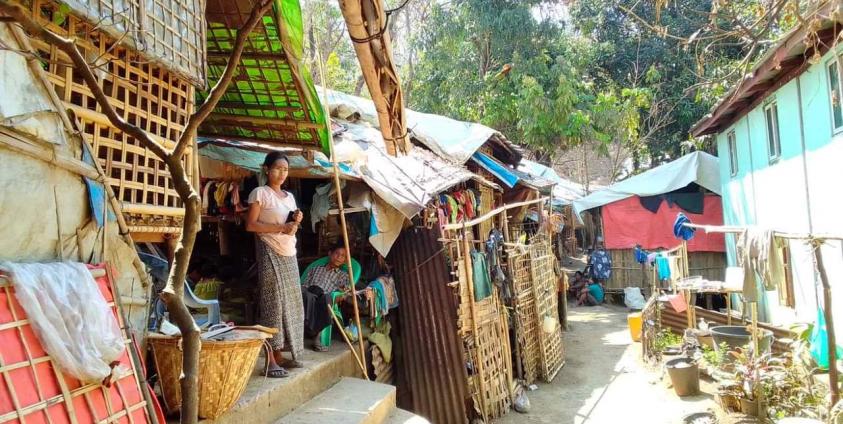The Internally Displaced People (IDP) camps in Rakhine State have been significantly impacted by Cyclone Mocha, and with winter approaching there is an urgent requirement for replacement supplies like blankets, warm clothing, mosquito nets, and mats that were damaged or lost during the cyclone, IDPs said.
Since November, the Nyaungchaung IDP camp in Kyauktaw Township has experienced a significant drop in temperature, leading to hardship for children and the elderly due to a shortage of blankets and warm clothing, according to Daw San Nwe, a resident of the camp.
"In the current situation, if one of the two people sharing a bed has a blanket, it's not sufficient for another. We also require warm clothing. The mosquito nets are too small for our family. Most of our mats were torn by Cyclone Mocha's destruction. The cold mainly affects children and the elderly”, she told Narinjara.
Approximately 700 households from over 20 villages, including Pyinetine, Upper Timma, Timma Gyi, Loungshay, Me Wa in Kyauktaw Township, as well as Late Gaung, Me Lat Wa, Hnamadar, Samee, and Pyin Wa in Paletwa Township, have sought refuge in that IDP camp established in 2017. A total of 939 individuals from 236 households are taking shelter at that camp.
"We need warm clothes and blankets, but we don't have regular jobs, so we can't afford them ourselves. We don't receive much assistance or allowances, so our financial situation is very difficult. We can't even afford basic vegetable dishes like watercress regularly, let alone fish or meat curries”, a war-displaced person sheltering in Train Station camp, another IDP camp in Kyauktaw said.
Likewise, at the Lat Kaut Zay IDP camp in Mruak-U Township, a significant food shortage is already a pressing issue, and with the arrival of winter, the demand for additional warm clothing and accessories has arisen, necessitating contact with the appropriate authorities to request assistance, according to U Lin Naing, in charge person of the camp.
 "We can't buy blankets and warm clothes on our own. We struggle to afford enough food as IDPs. So we need to seek help from relevant organizations and departments for our needs”, he noted.
"We can't buy blankets and warm clothes on our own. We struggle to afford enough food as IDPs. So we need to seek help from relevant organizations and departments for our needs”, he noted.
In that camp, residents from Pauktawpyin, Oakphokan, Ywarhaungtaw, Wethali, Thayetchaung in Mrauk-U Township, Panmyaung village in Minbya Township, and Alekyun village in Kyauktaw Township - a total of 7 villages - have found shelter.
The Lat Kaut Zay IDP camp began its operations in 2019 and is currently home to 630 individuals from 159 households.
In the Dhamma Yone (Chapel) IDP camp in Rathedaung Township, the World Food Programme (WFP) has provided each resident with a monthly subsidy of 33,000 MMK.
U Kyaw Tun Naing, the camp's manager, highlighted the challenges faced by IDPs, who find it very tough to purchase essential winter gear with this income alone.
"These days the evenings are much colder, and we really need mosquito nets and warm clothes. The cyclone destroyed what we had, so we have to replace them. Unfortunately, we haven't received any help from donors. Many of us in the camp rely on sporadic manual labor, and our income is irregular. It's not even sufficient for buying food, so affording warm clothes and blankets is nearly impossible”, he told Narinjara.
The camp was established at the Dhamma Yone Monastery in the northeastern part of Rathedaung Township in September 2019.
In the Dhamma Yone IDP camp, 587 individuals from 181 households from seven villages, including Hte Swe, Kyauk Tan, Aung Myay Kone, and Thaung Da Ra in Rathedaung Township, have taken shelter.
IDPs in Rakhine State rely solely on the monthly financial support from WFP, as they do not receive any assistance from the Military Council, and the availability of donor support has dwindled to nearly nothing.
As a result, the majority of IDPs must address their livelihood challenges by engaging in sporadic manual labor, and there are days when entire families have no food due to a lack of income.
Over 200,000 individuals were displaced as a result of the fighting between the Arakan Army (AA) and the Myanmar Military in Rakhine State, which began in 2018. While many have been able to return home as the clashes subsided, approximately 60,000 people, who were unable to return due to military and security concerns, still reside in IDP camps, grappling with a range of hardships.







